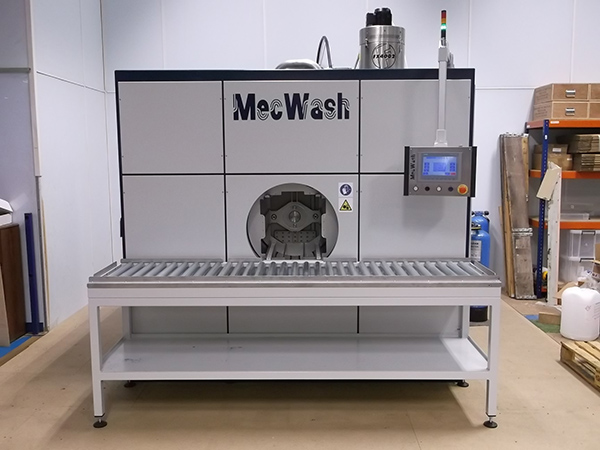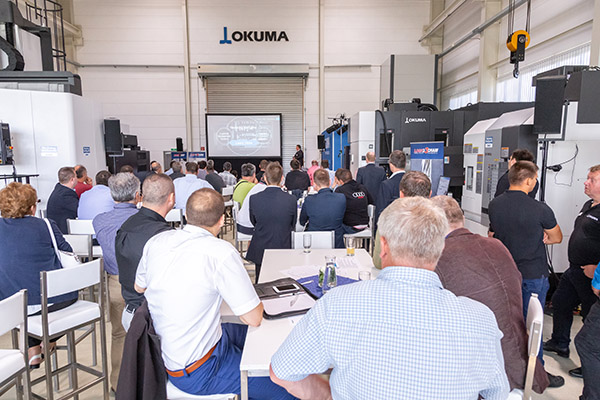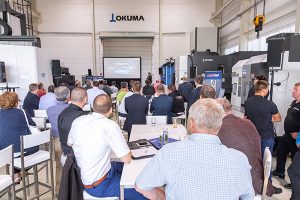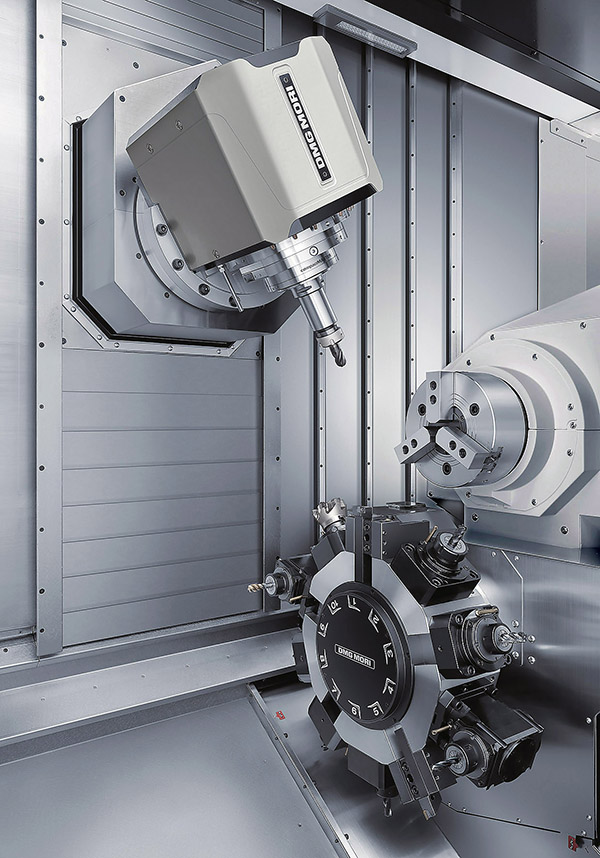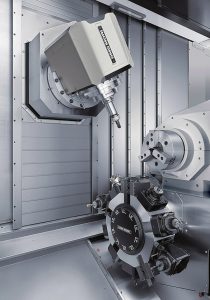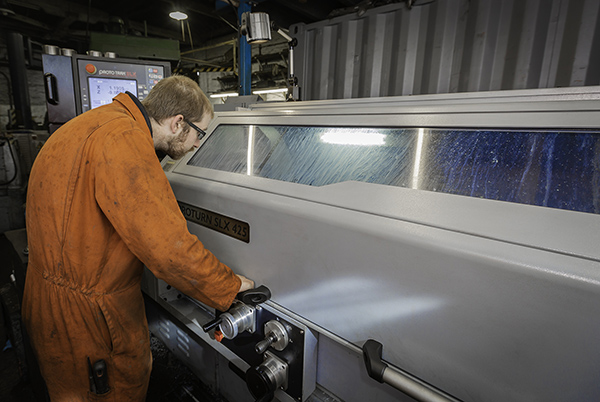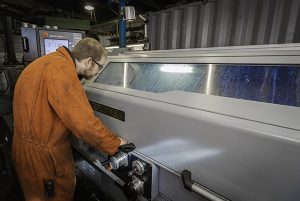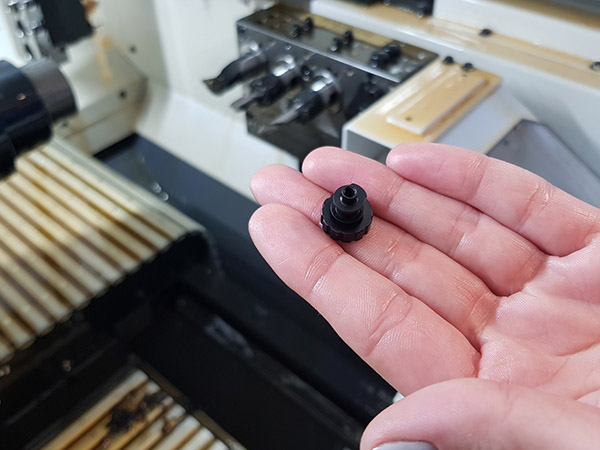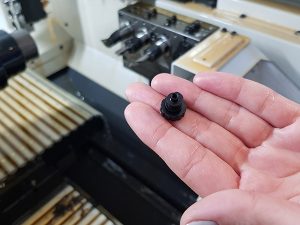A need to radically improve the component cleaning capabilities at a precision engineering company has resulted in significant savings, reduced production times and new orders; all thanks to a new MecWash industrial parts-washing system.
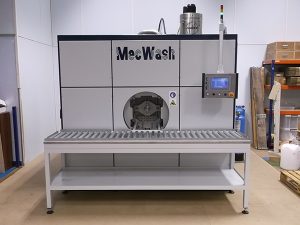
Nottinghamshire-based Swiftool Precision Engineering is an award-winning subcontract manufacturing business boasting a range of blue-chip customers in the aerospace, nuclear, marine and petrochemical sectors, among others.
With demanding quality standards for its precision-machined components, the company found that an existing basic spray-wash and small ultrasonic bench-washing system was not as thorough as the exacting requirements needed to meet growing demands from customers. Swiftool Precision duly turned to industrial parts-washing specialist MecWash for a solution.
“Quality is what Swiftool is all about,” states Andy Carnell, project manager at Swiftool. “The existing washing system was just not cleaning well enough. We needed to surpass the standards that not only we expect, but that our clients demand.
“The system was dated and, more importantly, unable to clean to the much smaller micron levels expected nowadays within the sectors we work in,” he continues. “Manufacturing high volumes of precision machined components in a range of materials also meant we needed to increase production time without losing quality.”
Working with the company, a MecWash MWX400 system was tested and configured, along with trials involving MecWash’s in-house laboratory and chemist to ensure the right wash chemicals were designed and matched, before the system was commissioned.
The MecWash MWX400 system provides ultrasonic wash and rinse, flood wash and rinse, mist rinse, spray wash and rinse, and hot air dry and vacuum dry. Contaminants needing to be removed from the manufactured components at Swiftool include neat oil, coolant and metal swarf.
The MWX400 system was commissioned into the manufacturing process and, in addition to significantly enhanced levels in cleanliness, production was also increased as a direct result.
“The MecWash system is far superior to what we had,” says Carnell. “It has saved so much time. It’s a lot quicker, more thorough and the results are far better.”
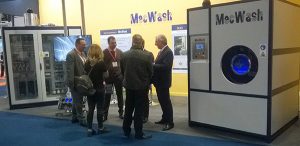
Swiftool has one of the most safety-critical environments, with the verified absence of foreign debris and contaminated material being vital. The company even has its own clean room certified to Rolls-Royce SABRe standard.
Carnell says the cycle times for cleaning both at the end and during the process have been improved significantly and “this has allowed us to reduce lead times and overall costs, thus attracting more business from our customers”.
Alan Atkinson of MecWash adds: “Swiftool works with companies that have the highest level of cleanliness requirements. We are talking particles sizes no larger than 500 µm. It’s vital there are no contaminants leaving the production process.
“Our systems provide the levels of cleanliness for such exacting results,” he adds. “They are designed to clean at much higher speeds with the same results, which means that production processes can also increase without compromise. This saves time and boosts productivity for our clients. And that’s through our team working with each customer to ensure the final commissioned system is optimised for their needs.”
Swiftool is one of many examples highlighting current confidence in the UK manufacturing supply chain. Indeed, this was further demonstrated at the MACH 2018 exhibition in April, with a surge of interest in MecWash technologies from new and existing customers.
With its range of aqueous parts-cleaning and degreasing systems on show at the UK’s main engineering-based manufacturing trade exhibition, MecWash managing director John Pattison says growth is not something just being talked about, it is happening, as demonstrated by the number and quality of leads generated at the event.
“MACH mirrored what we’ve witnessed over recent months from customers seeking to invest in new washing systems as their own orders rise,” he says. “The footfall on our stand wasn’t just to view our technology, it was to discuss specific investment projects from existing and new customers who are experiencing a surge in orders themselves and are looking to ramp up production.
“From smaller precision engineering suppliers through to the blue-chip giants within the automotive, aerospace and general engineering sectors, there were some very encouraging signs for the UK and global markets at MACH,” he adds.
Pattison also highlights research that found more than 40% of UK manufacturers expect growth in global trading conditions. The research by EEF and AIG also stated that nearly 70% of UK companies expect to increase productivity in 2018.
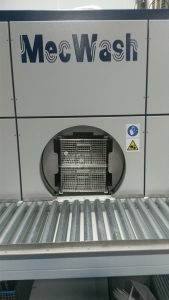
“MACH 2018 is one of the UK’s largest engineering-based manufacturing exhibitions, attracting thousands of representatives from key stakeholders, companies and investors,” says Pattison. “It is one of several key trade exhibitions in the UK, Europe and US that MecWash attends.
“Another factor in the investment coming through is the need for quality,” he concludes. “We believe the interest and leads generated at MACH highlight the high reputation of our aqueous washing systems.”
For further information www.mecwash.co.uk




